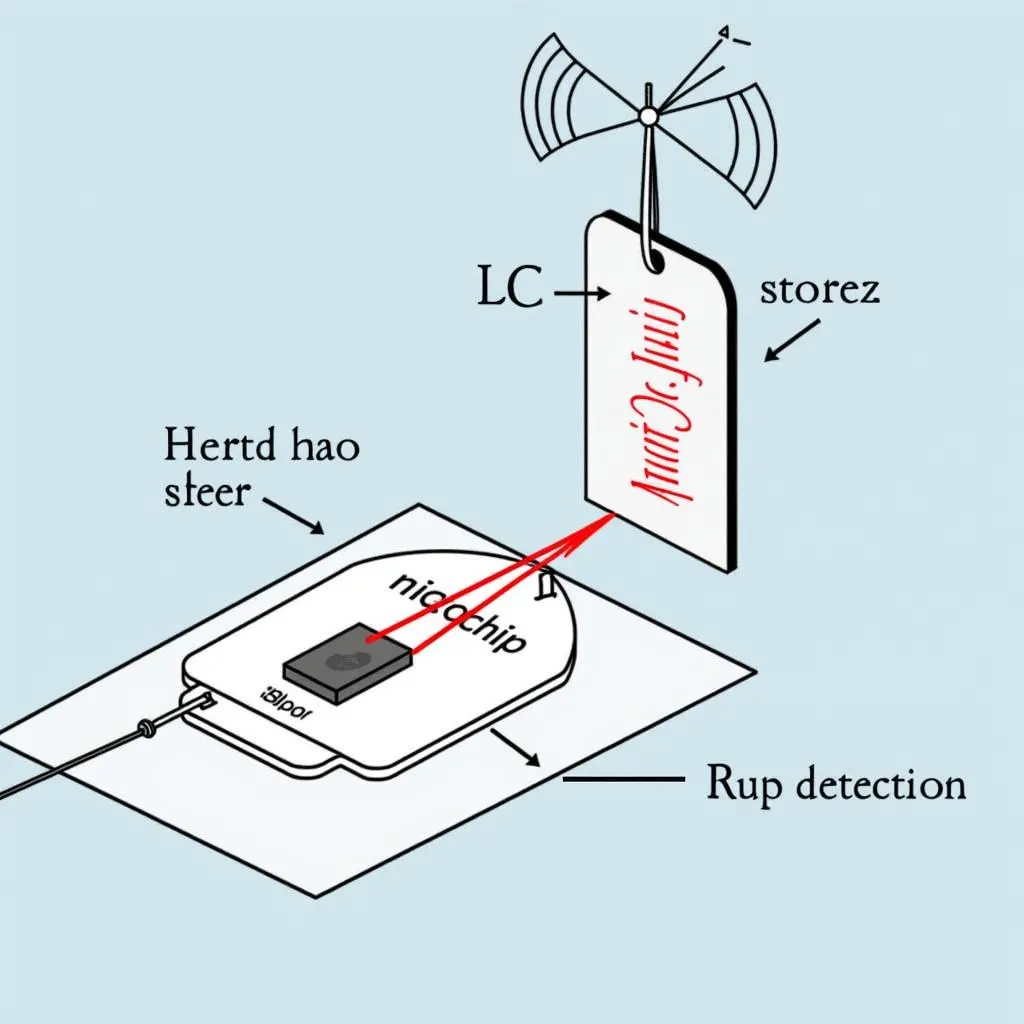The EPC warning light on your Seat Ibiza FR can be a real headache. This light is part of your car’s Electronic Power Control system, which manages your engine’s throttle, fuel injection, and ignition. When it illuminates, it means something is amiss with one of these systems, potentially impacting your car’s performance and safety.
This article will guide you through the common causes of an EPC warning light in a Seat Ibiza FR and how to troubleshoot them.
Common Causes of an EPC Warning Light
While a faulty component within the EPC system is the primary trigger for the warning light, numerous issues can cause it to illuminate. Here are some of the most common culprits:
-
Faulty Throttle Position Sensor: This sensor relays information about the position of your accelerator pedal to the engine control unit (ECU). A malfunctioning sensor can send incorrect signals, confusing the ECU and triggering the EPC light.
-
Malfunctioning Mass Air Flow Sensor: The mass air flow sensor measures the amount of air entering the engine, crucial for determining the correct air-fuel mixture. If it sends faulty readings, the engine may receive too much or too little fuel, leading to the EPC light.
-
Faulty Oxygen Sensor: The oxygen sensor monitors the exhaust gases to ensure optimal combustion. A failing sensor can lead to inefficient fuel consumption and increased emissions, causing the EPC light to turn on.
-
Worn Spark Plugs: Spark plugs ignite the air-fuel mixture in the combustion chamber. Worn-out spark plugs can cause misfires and engine performance issues, prompting the EPC light.
-
Vacuum Leaks: A vacuum leak in the engine intake manifold can disrupt the air-fuel mixture, affecting engine performance and potentially triggering the EPC light.
Troubleshooting the EPC Warning Light
Before you panic and rush to a mechanic, there are a few things you can check yourself:
-
Check Your Gas Cap: A loose or damaged gas cap can trigger the EPC light as it can affect the fuel system’s pressure. Ensure your gas cap is securely tightened.
-
Inspect Your Air Filter: A clogged air filter restricts airflow to the engine, potentially causing performance issues and triggering the EPC light. Check your air filter and replace it if it’s dirty.
-
Visual Inspection: Open the hood and look for any loose connections, damaged wires, or vacuum hoses in the engine bay. While this might not solve the issue, it can help identify obvious problems.
When to Seek Professional Help
If your DIY troubleshooting doesn’t resolve the issue, it’s best to seek professional assistance. A qualified mechanic can use a diagnostic tool to read the error codes stored in your Seat Ibiza FR’s ECU. These codes provide specific information about the problem, allowing the mechanic to pinpoint the root cause and perform the necessary repairs.
Remote Diagnostics and Software Solutions
Advancements in automotive technology have paved the way for remote diagnostics and software solutions for certain car problems. If you suspect a software-related issue with your Seat Ibiza FR’s EPC system, you can explore remote diagnostics services offered by specialized automotive companies.
These services often involve connecting your car to a diagnostic tool and allowing experienced technicians to analyze the data remotely. In some cases, they might be able to resolve software glitches, update your car’s software, or provide more specific guidance for a local mechanic.
Preventing Future EPC Warning Lights
While not all EPC warning light issues are preventable, following regular car maintenance practices can significantly reduce their likelihood. This includes:
-
Regular Servicing: Adhering to your Seat Ibiza FR’s recommended service schedule ensures timely inspection and replacement of crucial components like spark plugs, air filters, and oxygen sensors.
-
Quality Fuel and Oil: Using high-quality fuel and oil can prevent the buildup of deposits that can affect engine performance and trigger the EPC light.
-
Addressing Issues Promptly: Ignoring warning lights or delaying repairs can exacerbate problems and lead to more severe damage in the long run.
Conclusion
An EPC warning light on your Seat Ibiza FR should never be ignored. While it can be a minor issue like a loose gas cap, it could also indicate a more serious problem with your car’s engine management system.
By understanding the common causes, performing basic troubleshooting, and seeking professional help when needed, you can address the issue promptly and keep your Seat Ibiza FR running smoothly. Remember, regular car maintenance is key to preventing many issues, including those that trigger the dreaded EPC warning light.
FAQs
1. Can I still drive my car with the EPC light on?
It’s not recommended to continue driving for extended periods with the EPC light on. While you might not experience immediate driving issues, ignoring it could lead to more severe damage or even leave you stranded.
2. How much does it cost to fix an EPC light issue?
The cost of repair can vary greatly depending on the underlying cause. A simple fix like a new gas cap will be inexpensive, while replacing a faulty sensor or addressing engine problems can be significantly more expensive.
3. Is the EPC light related to the check engine light?
While both lights indicate engine-related issues, they are separate systems. The EPC light focuses on the electronic power control system, while the check engine light encompasses a broader range of engine-related problems.
4. Can a bad battery cause the EPC light to come on?
While a weak battery can sometimes trigger various warning lights, it’s less likely to directly cause the EPC light. However, a failing battery can disrupt the car’s electrical system, potentially affecting the EPC system as well.
5. How can I prevent EPC light issues in the future?
Following the recommended service schedule, using quality fuel and oil, and promptly addressing any car issues can significantly reduce the likelihood of future EPC warning light problems.

